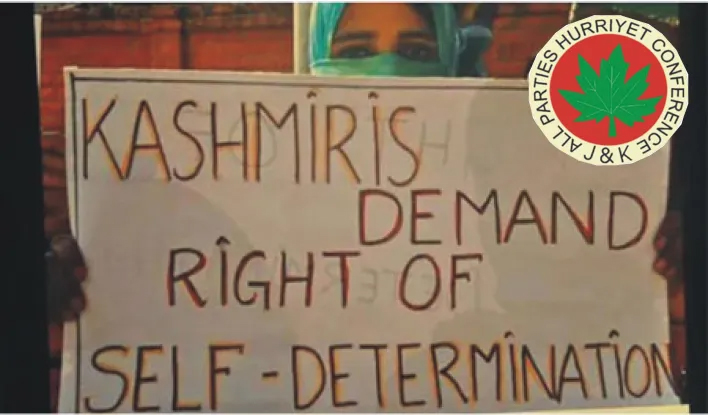| |
| Concept of self-determination & issue of Kashmir |
| |
| |
 |
| |
| |
| Online Desk: The Utrecht Treaty was signed in 1713 that transferred sovereignty over Gibraltar from Spain to Britain. The treaty did not become defunct because of lapse of time and in spite of Spain’s claims. Britain gained control of Hong Kong in 1898 from China but had to return it after 99 years in line with its accord with China. The agreement of Taiwan is likewise a live issue despite the lapse of time. Another case is of East Timor, the one Mr. Kofi Annan has referred to. The UN Resolution is of 1975 and got implemented only in 2000, after 25 years. If 25 years’ lapse could not render ineffective the Resolution of 1975, how can the Resolutions on Kashmir be ineffective.”
It is worth noting that when the people of Kashmir demand the right of self-determination, they do not demand it only under the UN Charter or under the Universal Declaration of Human Rights or under Article 1 of the International Covenant on Civil and Political Rights, which they can do lawfully but they do demand this right under the 16 substantive resolutions of the United Nations Security Council. Secondly, the International Court of Justice set out four factors of a people to seek the right to self-determination: 1). A definable territory; 2). A history of independence or self-rule; 3). A distinct culture; 4). A will and capacity to regain self-governance. Kashmir meets all the required standards.
First factor: A definable territory: The territory of Kashmir comprises about 86,000 square miles. It is more than three times the size of Belgium, the Netherlands and Luxembourg combined. It is also somewhat larger even than the United Kingdom. It is in fact larger than 103 sovereign countries. Its current population 23.5 million makes Kashmir bigger than 129 independent nations.
Second factor: A history of independence or self-rule: Kashmir had a long history of self-governance pre-dating the colonial period. In this regard, it is revealing that under British colonial rule, Kashmir was granted internal autonomy. The territory of Kashmir has been clearly defined for centuries. Kashmir successfully regained independence when overrun by Alexander’s Empire in the 3rd century B.C. and the Mughal Empire of the 16th and 17th centuries.
Third factor: Regarding cultural uniqueness: The Kashmiri culture is distinct from other cultures. Kashmiri culture is known as Kashmiriyat. Its culture has unique folklore, dress, traditions and cuisine. Everyday artefacts such as cooking pots, jewellery have a unique Kashmiri style. Even fabric, embroidery, carpets and shawls have uniquely Kashmiri designs. The Kashmiri people speak a totally different language – Kashmiri – which is distinct from Urdu, Hindi and Persian. One prime and interesting example is tea. In the whole of India and Pakistan, people take tea with sugar while as in Kashmir they take tea with salt.
Fourth factor: Will and capacity to regain self-determination. Never really since 1947 have the people of Kashmir given up the wish of self-determination.’ They resisted the British and maintained autonomy throughout British rule. In 1931 the Kashmiri people and their leadership formed the “Quit Kashmir” Movement against the British and the British-supported Maharajah. And the “Quit Kashmir” campaign against the Maharajah continued into 1946, when it reconstituted itself into the Azad (Free) Kashmir Movement.
|
| |
|
|
|
| |

|
|
Chief Advisor: Md. Tajul Islam,
Editor & Publisher Fatima Islam Tania and Printed from Bismillah Printing Press,
219, Fakirapul, Dhaka-1000.
Editorial Office: 167 Eden Complex, Motijheel, Dhaka-1000.
Phone: 02-224401310, Mobile: 01720090514, E-mail: muslimtimes19@gmail.com
|
|
| |
|

